The Listening Room Archive 2012
A curated collection of the finest works from MIT's Music Program
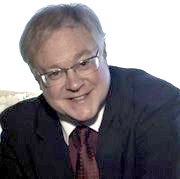
David Deveau, Senior Lecturer of Music
Beethoven: Piano Concerto No. 4 in G major, Op. 58
arr. by Beethoven for chamber ensemble
Performed by David Deveau
I. Allegro moderato
II. Andante con moto
III. Rondo: Vivace
David Deveau, soloist
Andres Cardenes and Carl Levinson, violins;
Rebecca Albers and Megan Mason, violas;
David Hardy, cello
Matthew Frischman, bass
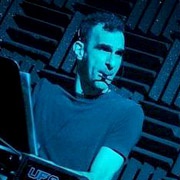
MIT Festival Jazz Ensemble
Playhouse
Jamshied Sharifi
James O'Dell, guest conductor
Frederick Harris, Music Director
April 2005
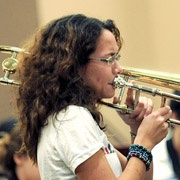
MIT Festival Jazz Ensemble
Portrait of Jenny
Russell Robinson & Gordon Burdge
Kenny Werner, arr.
Frederick Harris, Music Director
April, 2012
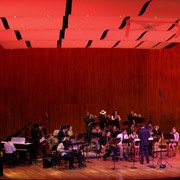
MIT Festival Jazz Ensemble
Sig Ep
John Cale
Everett Longstreth, guest conductor
Frederick Harris, Music Director
May, 2008
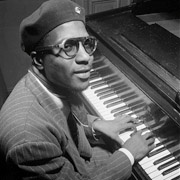
MIT Festival Jazz Ensemble
Rhythm-A-Ning
Thelonious Monk
Jeff Friedman, arr.
Herb Pomeroy, conductor
April 1981
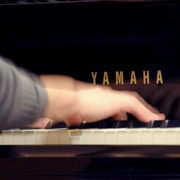
MIT Festival Jazz Ensemble
Go On
Composed and conducted by Jamshied Sharifi
James O'Dell, Music Director (1992-1999)
May, 1992
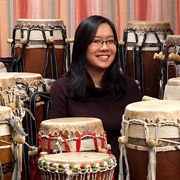
Patricia Tang, Associate Professor of Music
Drogue
From "Nder et le Setsima Group"
Composed by the Nder et le Setsima Group
Performed by Patricia Tang, violin;
Alioune Nder, vocals;
Jean-Philippe Rykiel, keyboard
Story: Global Drumbeat
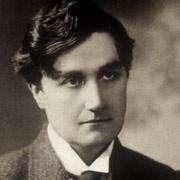
MIT Wind Ensemble
Toccata Marziale
Ralph Vaughan Williams
Frederick Harris, Music Director
Fall 2011
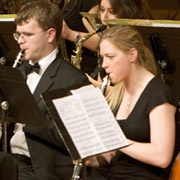
MIT Wind Ensemble
First Suite in Eb
Mvt. III-March
Gustav Holst
Frederick Harris, Music Director
Fall 2011
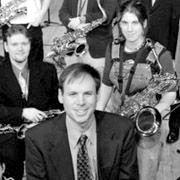
MIT Festival Jazz Ensemble
Hermanos Latinos
Hermeto Pascoal
arr. by Guillermo Klein
Frederick Harris, Music Director
Fall 2011
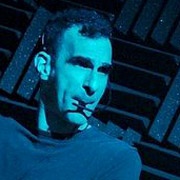
MIT Wind Ensemble
Awakening
A Tribute to the Arab Spring
Movement III | Ahead: The Real Transformation Has Barely Begun
Jamshied Sharifi
Frederick Harris, Music Director
Spring 2012
Commissioned by the MIT Wind Ensemble
Video: New England Emmy-winning film about the Awakening concert
Watch: “Awakening” Parts I-III
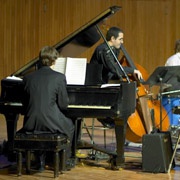
MIT Festival Jazz Ensemble
Experience
Adrian Grossman, '14
Frederick Harris, Music Director
Spring 2012
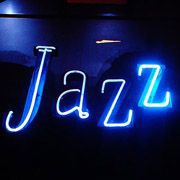
MIT Jazz Combo
Tombo in 7/4
Frederick Harris, Music Director
Spring 2012
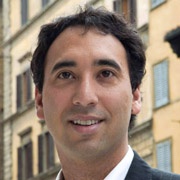
Michael Cuthbert, Homer A. Burnell Career Development Professor of Music
D'amor languire, ballata a due voci
Edited and Reconstructed by Michael Cuthbert
Antonio Zachara da Teramo (ca. 1405), composer
Performed by Ensemble Micrologus
Antonio da Teramo, called Zachara (“shorty”), was one of the most innovative and influential composers in Europe around the year 1400. He invented a form later called the “parody mass,” where parts of a polyphonic mass would be based on sections from a pre-existing secular song by the same composer. One of his first parody mass movements, the Credo Scabioso, was long thought to have been based on a lost song which was only discovered in the early 1990s in two separate copies. Both copies of the song are incomplete and heavily damaged. Cuthbert reconstructed as much of the song as possible and filled in the missing sections with music extracted from the Credo (ironically reversing Zachara’s process) and with his own music in Zachara’s style. The completion was premiered by the Ensemble Micrologus in Zachara’s home town of Teramo in 2002 and this recording was released in 2008.
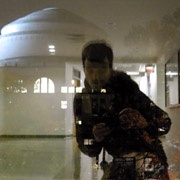
Peter Whincop, Lecturer of Music
Keep it sub rosa, or between the cracks, 2008
Peter Whincop, composer
"... quod non potuere vetare,
ex aequo captis ardebant mentibus ambo.
conscius omnis abest; nutu signisque loquuntur,
quoque magis tegitur, tectus magis aestuat ignis."
"... that which could not be forbidden
raged equally in both their captive minds.
They spoke by glances and signs,
and the fire burned more intensely for being covered up."
— Ovid, Metamorphoses, Book IV, lines 55-166, Pyramus and Thisbe. Translation Bullfinch's and mine.
Made from material I recorded at airports across the country, in the snow, from minutely detailed sequences out of vacuum tube devices, layering turntable emulation plugins with feedback, passed through heavy digital and light analog passive filters, some fake tape saturation, and two external samples: Gavin Bryars, Sub Rosa and the previously MIT-related Carrie Okie band's Pixellation.
The archetypal love-crossed tragedy describes a love that grew slowly ("tempore crevit amor"). For me, that is of the poem itself and its language, of painting colorfully and composing in electronic media, all of which have always been both slow to grow, and intense; though, I hope, not to end tragically....
There is a dedication, but it's already in the words and music partly accounting for the rather protracted time this took to put together. To be released by Intransitive in May 2012.

Peter Child, Class of 1949 Professor of Music
Doubles (excerpt)
Peter Child, composer
Performed by David Deveau, Senior Lecturer, piano
From "Doubles" (Albany Records, 2009)
Doubles 1999 is a collection of character pieces for solo piano. Many of them are "bitonal" i.e., they are written in two different keys simultaneously, hence the title of the set. Doubles I (Chase, Lullabies, Rat-tat-tat) was written for my daughter Madeleine when she was eight years old (she promptly gave up the piano after that and devoted her musical gifts to percussion). My MIT colleague and friend David Deveau gave the premiere of this first set, and his subtle interpretation revealed to me greater potential of the doubles concept. Doubles II (Inward, Fleeting moment, Tango, Romance, Boogie), is dedicated to David, and in this set a decidedly Romantic temperament predominates.
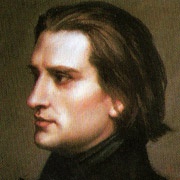
Xinran Ryan Liu '14
Transcendental Etude No. 10 in F Minor
Franz Liszt
Performed by Emerson Scholar, Xinran Ryan Liu '14, piano
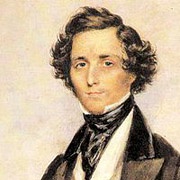
Andrew Wang (G)
Prelude and Fugue in E Minor; Op. 35, No. 1
Felix Mendelssohn
Performed by Emerson Scholar, Andrew Wang (G), piano
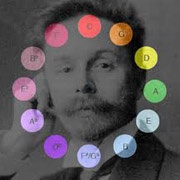
Nathan Haouzi '11
Piano Sonata No. 6
Alexander Scriabin
Performed by Emerson Scholar, Nathan Haouzi '11, piano
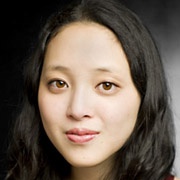
Jennifer Lai '11
Sonata No. 30 in E Major; Op. 109
I. Vivace ma non troppo-Adagio espressivo-Prestissimo
Ludwig van Beethoven
Performed by Emerson Scholar, Jennifer Lai '11, piano
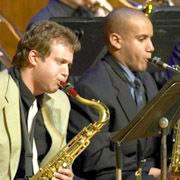
MIT Jazz Combo
Jump Skip
Robert McQueen
Keala Kaumeheiwa, coach
Nat Atnafu - Bass
David Garcia - Drums
Colleen Josephson - Baritone Saxophone
Anders Lee - Guitar
Rob McQueen - Piano
"In a never-ending pursuit to find equilibrium, Jump Skip is a funk tune that is most defined by the clashing beats of the melody and bass. The bass part acts as a backbone to the song and is spearheaded by both the upright bass and baritone saxophone. In contrast, the melody (by the piano) consistently finds itself a half-beat off the beat of the bass, resulting in an urge to "jump" back and "skip" ahead at the same time. The conflicting beats of the bass and melody are finally resolved by the drum, which takes hold of the song in a marching-band-style fashion." Robert McQueen
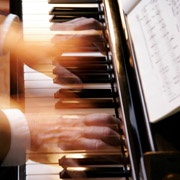
Shu Zheng '13
Hungarian Rhapsody No. 12
Franz Liszt
Performed by Emerson Scholar, Shu Zheng '13, piano

Eun Suk Lee (G)
Danse Infernale - Berceuse - Finale
The Firebird Suite
Igor Stravinsky
Performed by Emerson Scholar, Eun Suk Lee (G), piano
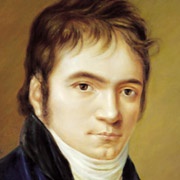
Jonathan Lau '11
Moderato cantabile
Sonata No. 31 in A-flat Major; Op. 110
Ludwig van Beethoven
Performed by Emerson Scholar, Jonathan Lau '11, piano
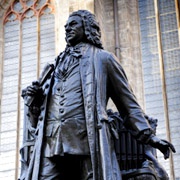
Terence Hsu '13
Chromatic Fantasy and Fugue in D Minor (BWV) 903
J. S. Bach
Performed by Emerson Scholar, Terence Hsu '13, piano

Amanda Mok '11
Etude-Tableaux in C Major; Op. 33, No. 2
Sergei Rachmaninoff
Performed by Emerson Scholar, Amanda Mok '11, piano
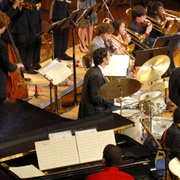
MIT Festival Jazz Ensemble
Blues and the Abstract Truth
Oliver Nelson
Frederick Harris, Music Director
2011
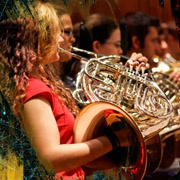
MIT Chamber Music Society
Scherzo
Horn Trio in E-flat Major; Op. 40
Johannes Brahms

MIT Jazz Choir and Festival Jazz Ensemble
In Praise of MIT
Music and original lyrics by John B. Wilbur '22
Arranged by John Harbison, 2011 | Revised lyrics
Performed by the MIT Jazz Choir and Festival Jazz Ensemble
for the MIT150 Celebration
This great arrangement of MIT's unoffical official song, by Pulitzer Prize-winning MIT composer John Harbison, opens with a short, decorous phrase (a nod to the 1922 original) — then shifts into festive jazz.
Lyrics
Arise all ye of MIT, in loyal fellowship.
The future beckons unto ye and life is full and rich.
Arise and raise your glass on high; tonight shall ever be
A mem'ry that will never die, for ye of MIT.
Thy sons and daughters, oh MIT, return from far and wide
And gather here once more to be renourished by thy side,
And as we raise our glasses high to pledge our love for thee
We join all those of days gone by in praise of MIT.
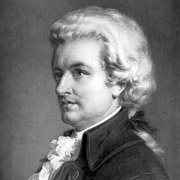
Chung-An Max Wu '13
I. Adagio ma non troppo; II. Rondo: Allegretto
Concerto in D Major; K. 314
W.A. Mozart
Performed by Emerson Scholar, Chung-An Max Wu '13, flute
Accompanied by Ryan Liu, piano
2011
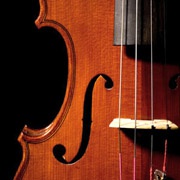
Ari Le (G)
Allegro
Violin Sonata, Op. 30, No. 1
Ludwig van Beethoven
Performed by Emerson Scholar, Ari Le (G), violin
Accompanied by Bogdan Fedeles, piano
2011

Paulina Sliwa (G)
Anzoleta avanti la regata
La Regata Veneziana
Giacomo Rossini
Performed by Emerson Scholar Paulina Sliwa (G), mezzo-soprano
Accompanied by Eileen Huang, piano
2011
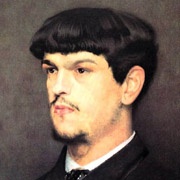
David Somach '11
Allegro vivo
Violin Sonata in G Minor
Claude Debussy
Performed by Emerson Scholar David Somach '11, violin
Accompanied by Yilin You, piano
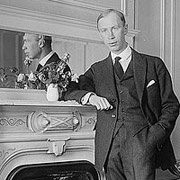
Kyumin Lee '13
Allegro moderato
Violin Concerto No. 2 in G Minor
Sergei Prokofiev
Performed by Emerson Scholar Kyumin Lee '13, violin
Accompanied by Yilin You, piano
2011
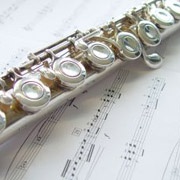
Vineet Gopal '14
Density 21.5
Edgard Varèse
Performed by Vineet Gopal '14, flute
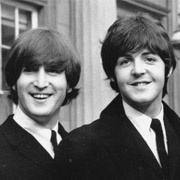
Dylan Sherry '12 and Adrian Grossman '14
Blackbird
John Lennon and Paul McCartney
Friday the 13th
Theolonius Monk
Performed by Emerson Scholars, Dylan Sherry '12, saxophone; Adrian Grossman '14, electric bass

MIT Symphony Orchestra
Mars, the first movement of The Planets,
a seven movement orchestral suite
Gustav Holst
Adam K. Boyles, conductor
Recorded live at Kresge Auditorium, 2011
Commentary about The Planets
Excerpt: "'Mars' is marked allegro and is in a 5/4 ostinato for most of its duration. It opens quietly, the first two bars played by percussion, harp and col legno strings. The music builds to a quadruple-forte, dissonant climax. Although 'Mars' is often thought to portray the horrors of mechanised warfare, it was completed before the First World War started. The composer Colin Matthews writes that for Holst, Mars would have been 'an experiment in rhythm and clashing keys,' and its violence in performance 'may have surprised him as much as it galvanised its first audiences.'"
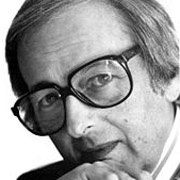
Nora Hickey '12
Sonata for Bassoon and Piano
Andre Previn
Performed by Emerson Scholar, Nora Hickey '12, bassoon
Accompanied by Eileen Huang, piano
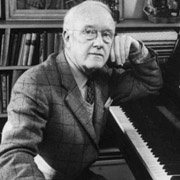
MIT Concert Choir
Alleluia
Randall Thompson
William Cutter, Music Director
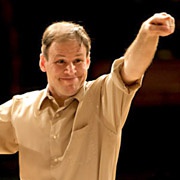
MIT Wind Ensemble
Chester Overture
William Schumann
Frederick Harris, Music Director
2011
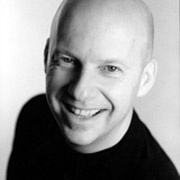
MIT Chamber Chorus
O Fortuna
Carmina Burana
Carl Orff
William Cutter, Music Director
2011
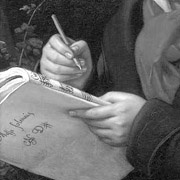
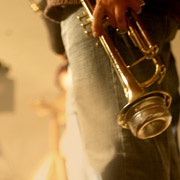
MIT Jazz Combo
Nica's Dream
Horace Silver
2011